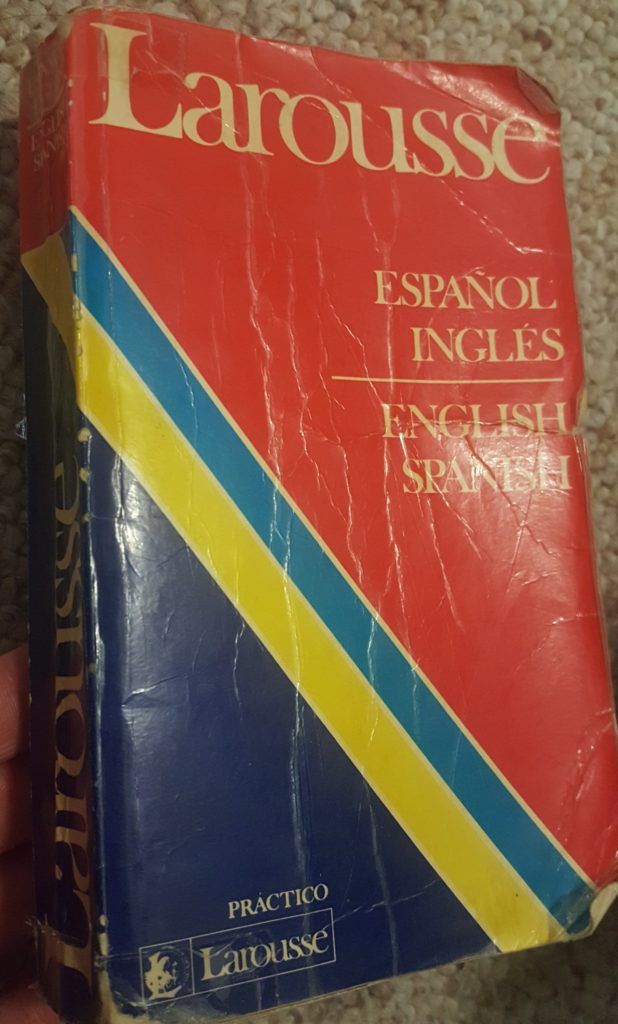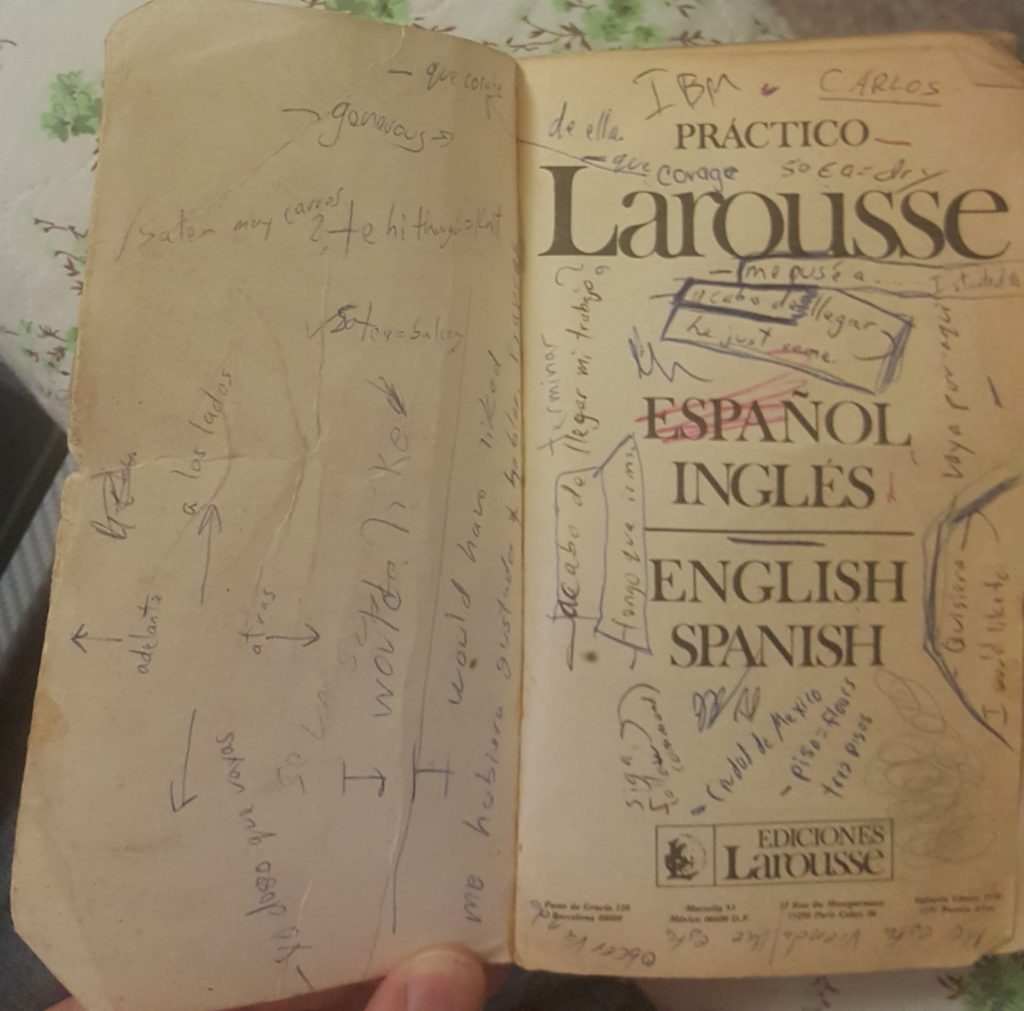The Larousse English/Spanish dictionary I bought in 1992 is my favorite book.
Favorite Book

It’s challenging to describe what it means to me. Growing up, I never thought that I could learn a language. When I moved to Mexico in 1992 I bought two books to learn Spanish:
- Madrigal’s Magic Key to Spanish
- Larousse English/Spanish Dictionary
Both are great but my Larousse dictionary is full of memories. It helped me communicate with so many people. It has hundreds of words/phrases written in the pages. Online dictionaries are incredible resources and I do use them but this little paperback is special.
Inside the Book

I did read the dictionary to learn vocabulary but the written notes from conversations made the language come alive.
Notes from the inside cover
me puse a... (I began to...)
acabo de terminar (I just finished)
quisiera (I would like {followed by verb})
yo deseo que vayas (I want you to go)
me hubiera gustado hablar Frances (I would have liked to speak French)
azotea (rooftop)
sótano (basement)
me está viendo (he/she is watching me)
me está observando (he/she is watching me)
tengo que irme (I have to leave)
Qué coraje (what courage .or. such bravery .or. what nerve)
vaya por aqui (go this way)
I learned so much from friends, acquaintances, people in stores/markets, etc. With these pieces of Spanish I would go into further detail and the conversation would continue. I’d also review the phrases and verb conjugations.
Other Notes
Below, more words/phrases from other pages:
gastador: que gasta mucho (spender: one who spends a lot)
traumarse (to be traumatized)
va y viene (comes and goes)
atavío (attire, decoration)
me conviene (it suits me, it's convenient for me)
equis motivo (whatever reason)
me siento (I feel. Also: I sit)
acércate (come closer)
adquieres más información (you acquire more information)
Me aferré (I persisted)
agáchate (duck {eg to enter a house})
agotado (exhausted)
más allá (over there)
él es amargo (he is bitter)
se me antoja (I feel like .or. I'm craving)
apaga la luz (turn off the light .or. he/she turns off the light)
estoy en apuros (I'm in trouble .or. I'm in a jam)
por aquí (around here)
olvídalo (forget it)
es todo lo que pido (that's all I ask)
no suena bien (it doesn't sound good)
atorando (clogging .or. choking .or. clogging)
hacia atrás (backwards)
tal vez le alcances (maybe you'll catch up with him)
no te metas en lo que no es tuyo (mind your own business)
caiga a quien caiga (?)
hacer burla de (make fun of)
no hagas caras (don't make faces)
codazo (nudge .or. poke)
quien hizo de comer? (who made food?)
conste (various translations)
date prisa (hurry up)
Tengo por costumbre... (I'm in the habit of...)
crujiente (cruncy)
A que no puedes... (I bet you can't...)
Desechable (disposable)
he fainted (se desmayó)
no cojees (don't limp)
despertamiento (awakening)
ella quería despedirse de la gente (she wanted to say goodbye to people)
cuando se case (when you're married .or. once he/she marries)
no lo dominas bien (you don't master it well)
se lo olvidó (he/she forgot)
echale un ojo (take a look)
I’ll keep adding to this. I’ve been getting lost in the phrases and words…exploring them and taking more notes!
Learning Backwards
I did take a few traditional Spanish classes. I would often have a head start over other students who had spend very little time learning Spanish outside of the classroom. Many times I could relate the grammar to a phrase one of my friends had said. I would often get the initial exposure from people and then re-enforce it later with grammar.
Learning grammar definitely helps but if not experienced or lived with native speakers then I think it’s just boring.